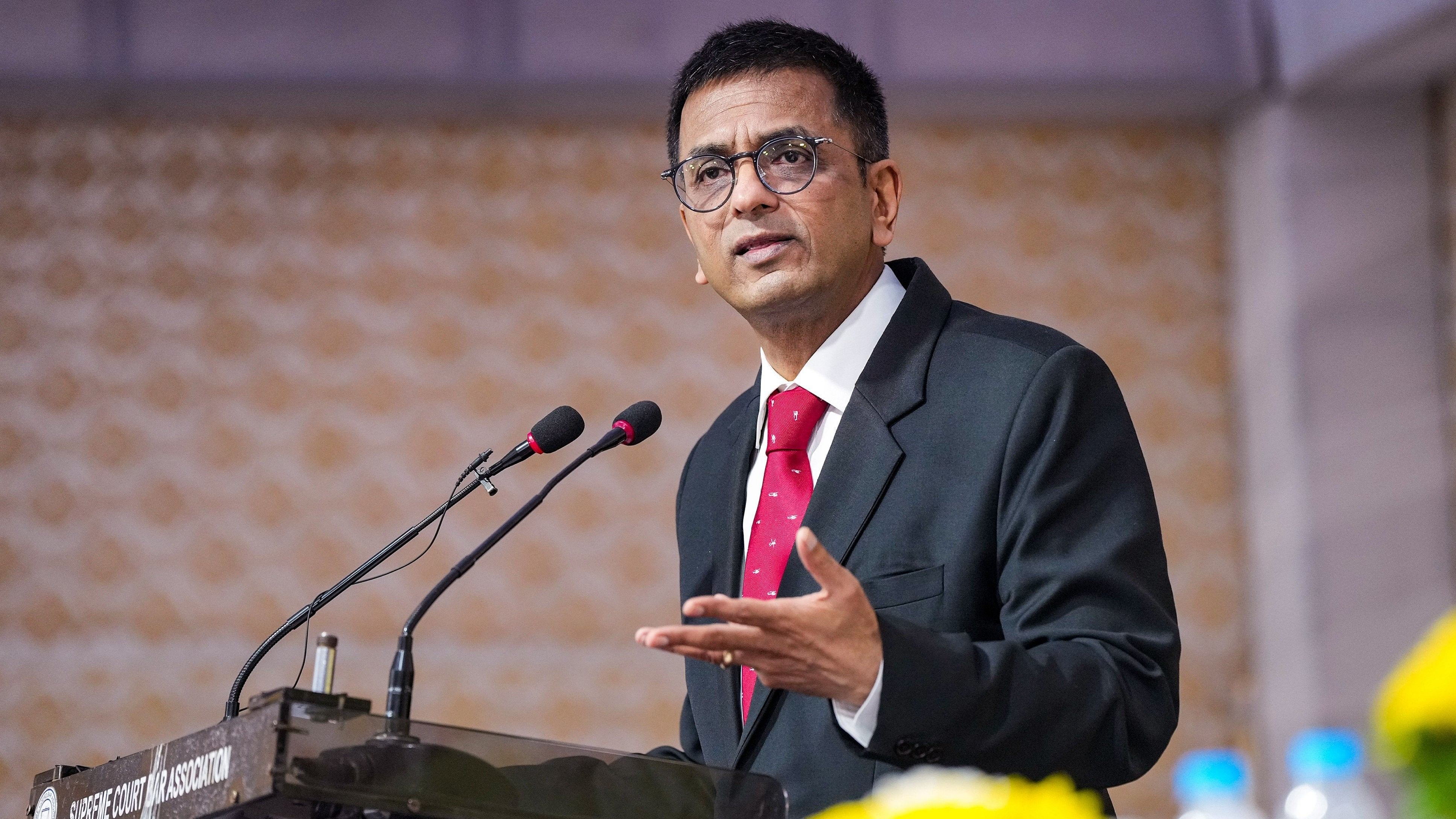
Chief Justice of India (CJI) Justice D Y Chandrachud.
Credit: PTI File Photo
New Delhi: Chief Justice of India D Y Chandrachud on Tuesday said that climate change can no longer be ignored and one crucial step is to incorporate a green lifestyle into our daily lives, which includes reducing carbon emissions.
Speaking at the foundation stone laying ceremony for the construction of court buildings at Karkardooma, Shastri Park and Rohini here, he said court premises like all buildings are not just made of bricks and concre, but also made up of hope.
"Courts are made to realise the virtues of justice and the rule of law. Every case that is being filed before us, is with that hope for justice. When we invest in the safety, accessibility and comfort of our judges, lawyers and litigants, we build more than just an efficient system – we make a just and inclusive system", he said.
The CJI said, this year Delhi experienced the hottest recorded weather and two heat waves were followed by record-breaking rain in a single day, so our infrastructure must reflect the reality we live in - climate change can no longer be ignored.
"One crucial step is to incorporate a green lifestyle into our daily lives, which includes reducing carbon emissions. I was delighted to know that the new buildings will focus on heat island mitigation and reduce environmental footprint", he added.
The CJI said accessibility measures are not annexes or afterthoughts to a building but an inherent structural consideration.
Referring to disability rights group's problems, he pointed out, "When Stephen Hawking, the great physicist and cosmologist came to India, he wished to see Indian monuments. To enable his movement, temporary wooden ramps were installed at four historical monuments. It is believed that if you touch the Qutub Minar and make a wish, it comes true. When Stephen Hawking was asked what he wished for at Qutub Minar, he said: 'I wish when I leave, these ramps remain'."
The CJI also said that courts carefully engage in rigorous discussions and arguments over legal principles and their application to specific cases.
"Judges carefully deliberate on the merits of each side's arguments before reaching a decision, ensuring a thorough and balanced examination of the issues at hand. Much like how the cornerstone of buildings shape its structure and orientation, the cornerstone of justice and equality must shape the orientation of the court’s approach to cases", he said.
The CJI said our legal and constitutional system is fundamentally premised on the virtues of justice, liberty, equality, and fraternity, and courts are the guardians of these foundational virtues.
"The foundation of a court must be sound – both in its structural and philosophical capacity. It must subserve no might but the Constitution and be in service of no one but the litigants. Our courts are not merely sights of sovereign power but are also essential public service providers", he said.
